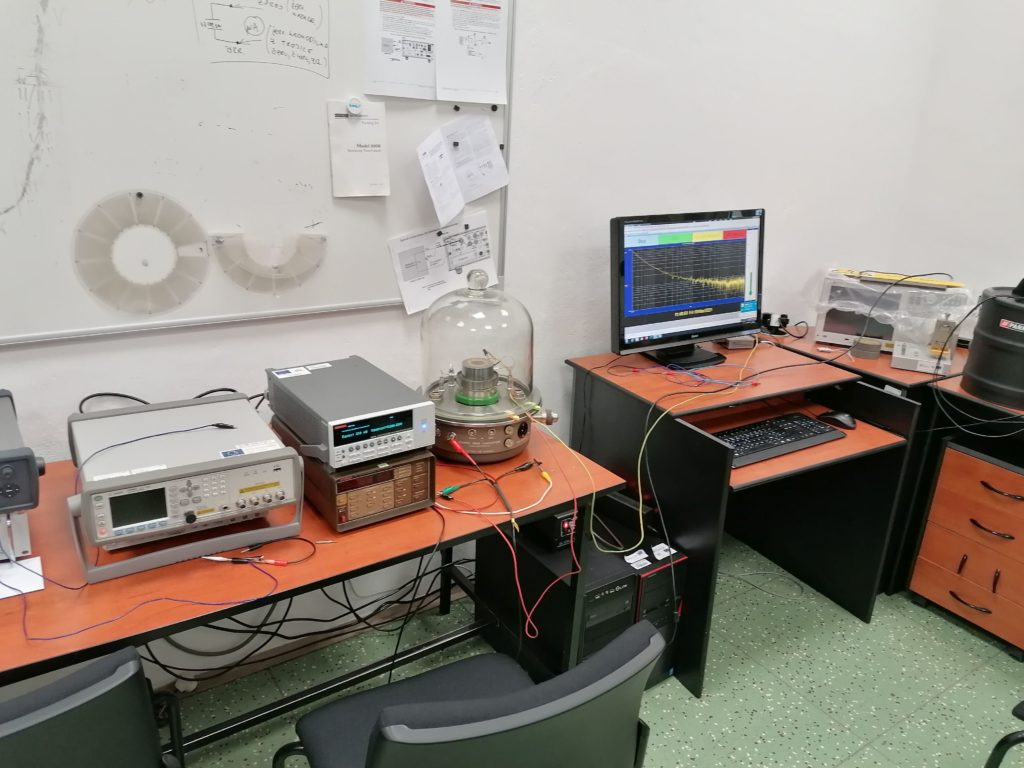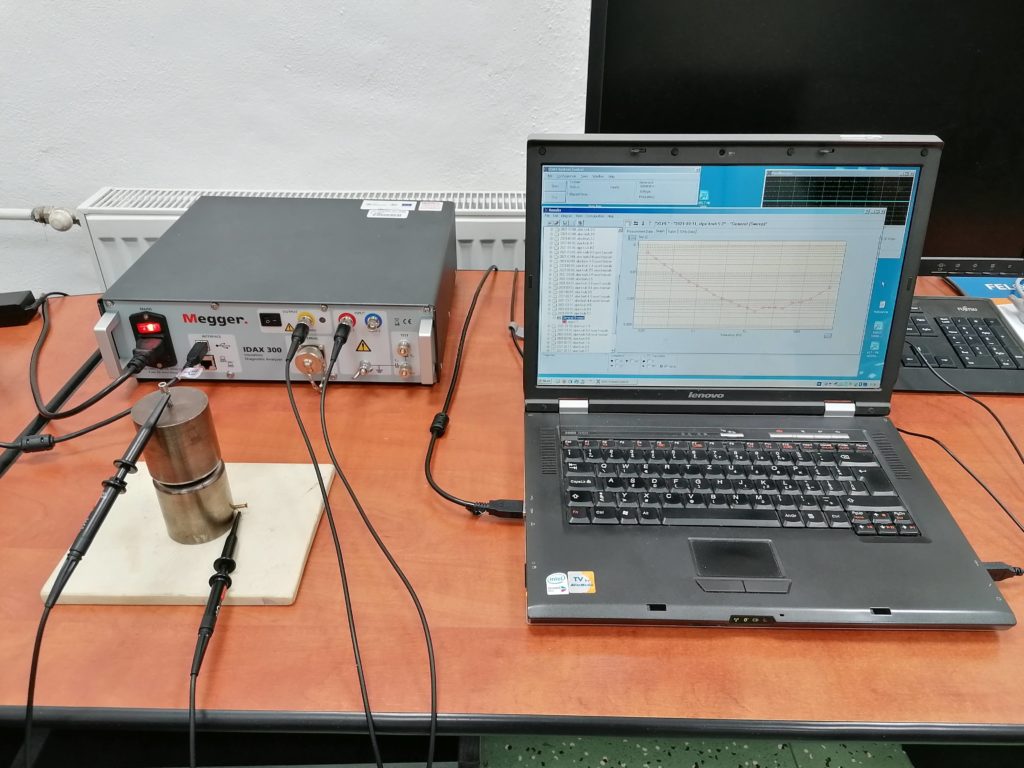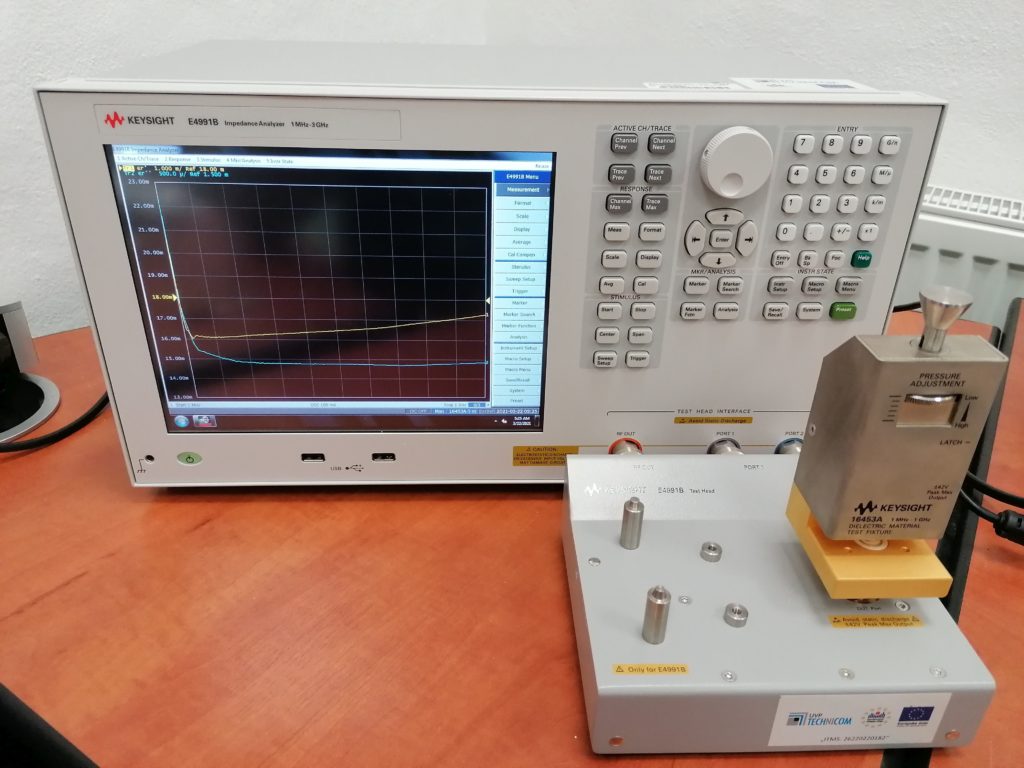Head of laboratory: prof. Ing. Roman Cimbala, PhD.
The Dielectric Spectroscopy Laboratory is used for scientific research purposes and for the elaboration of final theses of bachelor’s and engineering students and doctoral dissertations at the Department of Electrical Power Engineering. The electrophysical structures of liquid and solid high-voltage insulating materials are investigated in the laboratory. Their change during aging under accelerated thermal stress is investigated. The laboratory is equipped with instruments and devices by which it is possible to study the influence of the amplitude and frequency of the test voltage on the value of dielectric parameters of the investigated materials. Their analysis by dielectric spectroscopy is performed in a wide frequency band from 0.1 mHz to 3 GHz. The materials are housed in impedance matched electrode systems for liquid and solid dielectrics. Measurements can be performed in an environment with oC up to 300 oC and material properties such as complex permittivity, complex capacity and dielectric loss factor can be determined. Volume and surface resistance can be determined up to 10 PW. Electrometers can measure currents with a sensitivity of up to 100 aA.
Subjects and outputs of education:
- Engineering study: Subject Automation in power engineering (basic knowledge about modeling of cyber-physical systems with a focus on material structures in power engineering, on data collection and analysis, on control and hierarchy of systems and processes in power engineering)
- Doctoral study: Subject Scientific activity 1-5 .: Ability to independently design, construct, implement and modify a substantial part of research with scientific integrity and contribute to the original research to expand the boundaries of scientific knowledge through the implementation of an extensive set of works, some of which are worthy of peer-reviewed publications. Achieving original scientific results, acceptable at the international level. Based on the implementation of scientific research, the graduate is considered an expert in his field.
- Doctoral study: Subject Dissertation project: Acquisition of methods of scientific work. Deepening knowledge of the topic of the dissertation. Intensive research to achieve original scientific results, acceptable at international level. The doctoral student is able to demonstrate the ability of creative independent and team work in solving a scientific research task or project by presenting results in the form of scientific publications, journals and conferences, participation in research teams of grant tasks, etc. He is able to formulate the goals of the dissertation and methods that lead to the fulfillment of its goals. He is able to design and apply scientific procedures for solutions. Can present procedures and results of his / her scientific work.
The laboratory is equipped with classic high voltage sources and modern measuring technology:
- Agilent E4991A RF – impedance material analyzer
- IDAX 300 AG 19090 – device for measuring dielectric properties of insulators
- Elektrometer Keithley 617- device for measuring low currents and high resistances
- Elektrometer Keithley 6517B – device for measuring low currents and high resistances with its own 1 kV source
- Agilent E4890A – RLC meter
- Agilent 16452A – fixture for measuring dielectric properties of liquids
- Agilent 16451B – fixture for measuring dielectric properties of solid materials
- Keithley 8080 – chamber with electrode system for measuring volume and surface conductivity
- Hewlett Packard 34401A – multimeter
- HAMEG HM8118 – RLC bridge
- FP 400 – PC controlled laboratory air dryer for thermal stress simulation
- Celestron CE44345 digital video microscope
- Technix SR-1200W-100kV – DC high voltage power supply
- Eurotest 61557 Euro Set – device for complete testing of electrical installations
- Fluke 437-II network quality analyzer



